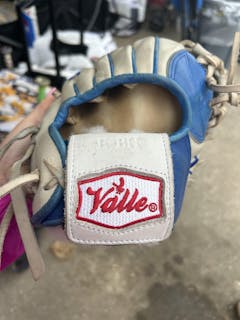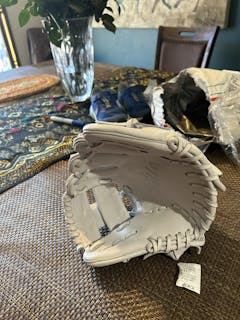Shipping in USA
Wheel Pitching Machine
The Baseball Home offers wheel pitching machines designed for realistic baseball and softball training. These machines simulate a variety of pitches, with adjustable speeds and angles. They provide consistent practice for players at any level, helping you hone hitting skills effectively.
Read more
Overview of Wheel Pitching Machines
Wheel pitching machines are engineered to replicate real-game pitching scenarios. They use one, two, or three wheels to control speed, spin, and direction, offering pitch speeds from 20 to over 100 mph. Dual and triple-wheel machines allow for advanced pitch types like curveballs and sliders, providing hitters with a challenging practice environment. Many models feature adjustable pitch angles for grounders and fly balls, improving training versatility. Built with durability in mind, these machines are suitable for frequent use and can be transported easily with built-in wheels or handles. They’re an essential tool for players looking to improve timing, reaction, and accuracy. Also, check out more of our high performing pitching machines collection to see your options.
Wheel Pitching Machine Product Types
Our collection includes single-wheel, dual-wheel, and triple-wheel machines. Each type is tailored to different skill levels and training objectives, offering unique features to meet your needs.
Single-Wheel Pitching Machines
Perfect for beginners and youth players, single-wheel machines focus on simplicity and consistent delivery. They offer pitch speeds between 20 and 60 mph, making them ideal for learning the basics. For example, if you’re coaching a youth team, a single-wheel machine set at 30 mph helps players practice their swings without overwhelming them. These machines typically weigh around 30 pounds, making them easy to move and set up anywhere. They offer fastballs and some off-speed pitches, providing a solid foundation for hitting practice. You can also shop battery powered pitching machines if portability is something you want.
Dual-Wheel Pitching Machines
Dual-wheel machines are suitable for intermediate and advanced players. They simulate a range of pitches, including fastballs, curveballs, and sliders, with speeds up to 90 mph. For example, a high school player can use a dual-wheel machine to practice hitting high-speed pitches, improving reaction time. These machines allow for precise control over pitch angles, making them versatile for training both batting and fielding. Weighing between 60 and 80 pounds, they include transport wheels for easy movement across practice locations.
Triple-Wheel Pitching Machines
Triple-wheel machines are designed for advanced training. They provide the highest level of pitch control, offering speeds over 100 mph and simulating complex pitches like splitters and knuckleballs. If you’re preparing college athletes for competitive play, a triple-wheel machine can replicate the toughest pitches they’ll face. These machines are more substantial, often exceeding 100 pounds, but they offer unparalleled pitch accuracy and variety. Built with heavy-duty frames, they’re designed for stationary setups in professional training environments. And if you have younger ones, you can purchase pitching machines for kids.
How to Choose a Wheel Pitching Machine
Choosing the right machine depends on your training goals and player skill level. For beginners or youth players, a single-wheel machine offers moderate speeds (20-60 mph) and straightforward pitch delivery. It’s the right choice for building basic hitting skills. For instance, if you're training a youth team, using a machine that pitches at 30 mph helps players get accustomed to consistent swings, building confidence without the complexity of advanced pitches.
Intermediate players should consider dual-wheel machines for their ability to simulate diverse pitches and higher speeds (up to 90 mph). This type is ideal for high school players needing to practice against curveballs and sliders. A dual-wheel machine’s speed adjustment and pitch angle control allow players to experience more challenging scenarios, preparing them for competitive play.
For advanced athletes, especially those preparing for college or professional levels, a triple-wheel machine is the best investment. With speeds over 100 mph and the capability to throw complex pitches, these machines simulate the intense conditions of competitive games. If you're training hitters to respond to high-velocity pitches, a triple-wheel machine offers the precision and variety needed to refine their skills.
Portability matters too. Single-wheel machines are lightweight and easy to move, suitable for on-the-go practice sessions. Dual and triple-wheel machines, though heavier, often come with transport wheels for easier movement. Assess your practice environment to determine the best fit.
Find the perfect wheel pitching machine for your training needs at The Baseball Home. Choose from our range of single, dual, and triple-wheel machines and upgrade your practice sessions today. Shop now for consistent, game-like pitching.
FAQs
Q: What is a wheel pitching machine used for?
Ans: A wheel pitching machine is used for baseball and softball training. It simulates various pitch types like fastballs, curveballs, and sliders with adjustable speeds, helping players improve their timing, reaction, and hitting accuracy.
Q: How fast can wheel pitching machines throw?
Ans: Wheel pitching machines can throw at speeds ranging from 20 to over 100 mph. Single-wheel models usually offer lower speeds, while dual and triple-wheel machines can simulate high-velocity pitches for advanced training.
Q: Are wheel pitching machines suitable for beginners?
Ans: Yes, single-wheel pitching machines are great for beginners. They offer moderate speeds (20-60 mph) and consistent pitch delivery, helping new players develop their hitting skills without the complexity of advanced pitches.
Q: What types of pitches can a wheel pitching machine simulate?
Ans: Wheel pitching machines can simulate a variety of pitches, including fastballs, curveballs, sliders, and changeups. Dual and triple-wheel machines offer more pitch variety and control than single-wheel models.
Q: How portable are wheel pitching machines?
Ans: Portability varies by model. Single-wheel machines are lightweight (around 30 pounds) and easy to transport. Dual and triple-wheel machines are heavier but often include transport wheels for easier movement across practice locations.
Q: Can wheel pitching machines be used for both baseball and softball?
Ans: Yes, many wheel pitching machines are designed for both baseball and softball. They include adjustable settings to accommodate different ball sizes and pitching styles, making them versatile for dual-sport training.
Q: How do I choose the right wheel pitching machine for my needs?
Ans: Consider the skill level and training goals. Beginners benefit from single-wheel machines with moderate speeds, while advanced players need dual or triple-wheel machines for more pitch variety and higher speeds.
Q: Do wheel pitching machines require electricity?
Ans: Most wheel pitching machines require an electrical outlet to operate. Some models may offer battery or generator options for increased portability, allowing use in locations without direct access to power.
Q: What maintenance is required for a wheel pitching machine?
Ans: Basic maintenance includes regular cleaning of the wheels, checking for wear and tear, and ensuring all moving parts are lubricated. Proper maintenance ensures consistent performance and prolongs the machine's lifespan.
Q: Can wheel pitching machines be used for fielding practice?
Ans: Yes, many wheel pitching machines can adjust pitch angles to simulate grounders and fly balls, making them useful for both batting and fielding drills. This versatility helps players develop a more comprehensive skill set.


































































































